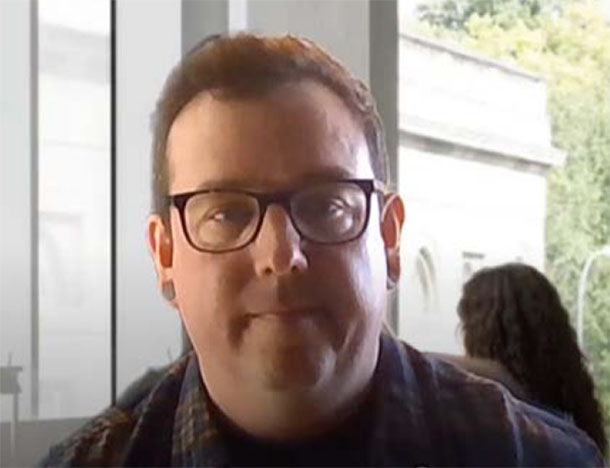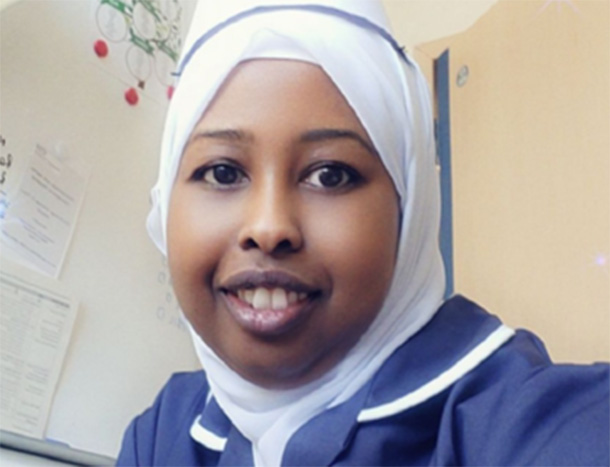Masters
2 years
Online - Part-time
90 ECTS
September 2026
Human Factors in Patient Safety 2026 intake webinar
Join us on Wednesday, 25 February 2026 from 6pm (Irish time) for our inter-disciplinary and online Postgraduate Diploma in Human Factors in Patient Safety 2026 intake webinar.
Find out more and register here.
10% Discount for Teams
Applications for this programme are now open. You can avail of a 10% discount when you apply with a colleague or friend from the same workplace (minimum two applicants).
Please note that our 10% Discount for Teams, only available for our online PgDip/MSc in Human Factors in Patient Safety programme, will close on Monday, 27 April 2026.
For more information please see the Fees and Funding section below.
If you have any queries, please submit your query here.
Programme brochure
The new online PgDip/MSc in Human Factors in Patient Safety 2026 intake brochure is now available to view.
About
The MSc in Human Factors in Patient safety is a two-year programme from the RCSI Department of Surgical Affairs – the first year of which leads to the award of Postgraduate Diploma, and the second year, which leads to the award of MSc.
You must complete the Postgraduate Diploma year to be eligible to progress to the MSc.
Expand the skills and knowledge required to become involved in and lead patient safety initiatives and improve personal effectiveness through enhanced teamwork, leadership and communication.
You will gain a greater awareness of risk and error in the workplace by honing skills required to mitigate risk and prevent adverse outcomes.
You will attend online interactive sessions and workshops one day per month. The rest of the multi-disciplinary programme including didactic teaching, discussion boards, reading, and resources are offered online, which you can access in your own time.
This course is a Level 9 award on the Irish National Framework of Qualifications.
Watch our current scholars Jessica, Ivan and Gabriele speak about their experience on our programme.
Gain an understanding of error, risk and safety in healthcare
Develop the skills necessary to be a safe and effective worker, team member, and leader
Conduct a research or quality improvement project to publication-ready standard
Suitable for
The programme is suitable for all healthcare professionals including surgeons, physicians, anaesthesiologists, emergency medicine doctors, obstetricians, pharmacists, nurses and midwives, as well as safety and quality managers.
We have had nurses from all acute care domains including ICU, surgery, emergency medicine and general medicine, as well as those that have transitioned out of nursing to safety and quality roles. Additionally, we have also had pharmacists and obstetricians undertake our programme.
What you will learn
Introduce patient safety with a systems perspective, exploring foundational and seminal literature
Improve personal effectiveness and team performance factors in healthcare settings
theoretical principles and practical strategies behind quality improvement in healthcare
Explore professionalism, ethical practice, and advanced communication, including end-of-life care
Study various research methodologies and develop a proposal for a research dissertation
Conduct an independent research or quality improvement project which will be presented as a ready-for-publication research paper
What our students say
Watch the video:
Yvonne Young (Assistant Director of Nursing in Sepsis, UL Hospitals Group, Class of 2024) highlights her experience undertaking the online Postgraduate Diploma/MSc in Human Factors in Patient Safety programme.
Watch the video:
Dr Emily O’Dowd (Senior Lecturer on the online Postgraduate Diploma/MSc in Human Factors in Patient Safety programme) highlights the value of the programme and what alumni have gone on to do after completing their studies.
Faculty highlight
Register your interest
For further information about this course, please submit your details below and a member of the team will be in touch.
Course information
This programme will assist you to:
- Describe and interpret the major concepts, principles, theories and methodologies associated with human factors and its application to patient safety and display an ability to synthesise and critically appraise the evidence.
- Identify and critically examine the specific person and system factors in hospitals which increase the risk of error and may impact patient safety.
- Appraise the role of non-technical skills in supporting safe and effective patient care.
- Utilise advanced communication and interpersonal skills to recognise and manage difficult situations arising from conflict with patients, relatives and colleagues.
- Demonstrate proficiency in the use of the main interpersonal and communication skills and tools.
- Recognise issues and circumstances in healthcare practice that raise potential legal liability and to utilise the frameworks necessary to analyse and critically evaluate errors in hospital practice.
- Select and apply quality and process improvement methodologies toward developing applied solutions to healthcare problems.
- Develop an idea into a comprehensive research strategy.
- Demonstrate mastery of the main qualitative and quantitative tools and techniques of human factors research and investigation.
- Champion and defend a systems perspective on risk and safety management in healthcare.
- Endorse the priority of patient safety in healthcare and demonstrate personal support for efforts to understand and manage healthcare risk more effectively.
Find out more about the benefits of this programme:
Year 1
| Module name | Description |
| Error and Safety in Acute Healthcare | In this introductory module, we take a systems perspective on the issue of patient safety. This is a foundation module, the seminal literature is explored in depth. |
| Personal Effectiveness and Non-technical Skills | This module focuses on the factors that contribute to improving personal effectiveness and team performance in healthcare. |
| Leadership of Process and Quality Improvement
|
In this module, the theoretical principles and the practical strategies behind QI are explored in depth.
|
| Professionalism and Advanced Communications | In this module areas of professionalism are explored including relationships with patients and ethical practice. Principles and practice of advanced communication including shared decision-making, obtaining consent, open disclosure, breaking bad news and end of life care are also included.
|
| Research Methods | Research methodologies including: experimental and quasi-experimental methods, quantitative descriptive/ observational research, qualitative and mixed methods research, pragmatic research approaches and research in process and quality improvement. Scholars will apply their skills to the development of a research proposal which will form the basis for their research dissertation.
|
Year 2
| Module name | Description |
| Research Dissertation | In this module you will apply the knowledge, skills, and techniques developed over the previous five modules. You will conduct an independent research or quality improvement project which will be presented as a ready for publication research paper. |
Module 1: Error and Safety in Acute Healthcare
- Day 1: September 2026 – Introduction to Programme and to Human Factors in Patient Safety
- Day 2: October 2026 – Expert Day
- Day 3: October 2026 – Group Project Presentations
Module 2: Personal Effectiveness and Non-technical Skills
- Day 1: November 2026 – Stress Day
- Day 2: December 2026 – Leadership Day
- Day 3: January 2027 – Group Project Presentations
Module 3: Leadership of Process and Quality Improvement
- Day 1: January 2027 – Quality Improvement
- Day 2: February 2027 – Group Project Presentations
Module 4: Professionalism and Advanced Communication
- Day 1: March 2027 - Professionalism
- Day 2: March 2027 – Advanced Skills Day
- Day 3: April 2027 – Group Project Presentations
Module 5: Research Methods
- Day 1: May 2027 – Introduction to Research
- Day 2: June 2027 – Applied Research Techniques
*All classes are recorded.
Formative assessment will include participation in classroom activities and group work. Summative assessment for the majority of the modules will involve:
- A 2,000-word assignment.
- Participation in a group project and presentation.
- A 300-word submission to a weekly discussion forum (n = 6-8 per module).
- Dissertation which includes a publication-ready research article accompanied by an extended literature review.
The programme is accredited by the National University of Ireland, the Nursing and Midwifery Board of Ireland (NMBI) and RCSI.
Admissions
This is an inter-professional programme. Applications are invited from all those working in healthcare, including surgeons, anaesthesiologists, emergency medicine physicians, obstetricians, radiologists, acute care nurses, pharmacists, physiotherapists, radiographers, social workers, dietitians, occupational therapists, other allied healthcare professionals and quality managers.
To be eligible, you must hold a Bachelor of Medicine (MB) or a primary degree in a health and social sciences field with a qualification achieved at the level of 2.2 honours.
All candidates must also provide evidence of at least two years’ postgraduate work experience in healthcare.
As part of the application process you are required to submit the following supporting documentation:
- CV.
- Copy of passport.
- Copy of educational transcripts.
- Proof of sponsorship (where applicable).
- A 500-word response to the question 'Why is healthcare still not safe?'. Please note that all responses will be screened for AI generated content. Before submitting your application please review our AI guidelines.
- Letter from current employer.
- Evidence of English language qualification (where applicable).
Recognition of prior learning (RPL) may be used to gain admission to programmes where an applicant may not have obtained the standard entry requirements. This is considered on a case-by-case basis.
Exemptions from programme modules which duplicate learning already demonstrably acquired through prior learning may also be considered on a case-by-case basis.
If you believe that you qualify for recognition of prior learning, you must contact the programme director to discuss why you believe you qualify. You will be asked to submit documentation to confirm equivalency.
More information is available here or you can contact us at PostgradSA@rcsi.ie.
If English is not your first language, you will also need to supply a copy of an academic IELTS examination, or equivalent, with an overall score of at least 6.5 and no individual band below 6.5*, unless exempt.
Exemptions may apply if you have:
- Completed school or undergraduate studies (three or more years) through English in a country where English is the majority native language
- Completed school or undergraduate studies (three or more years) in an English speaking institution in a country where English is not the majority native language and where an IELTS score of 5 or more was a requirement for admissions to the programme
- Been working in a country (two years or more) where English is the majority native language or for an employer where English language is the official language
Please note: Certified proof must be uploaded as part of your application.
Read more about minimum English language requirements here.
Places on this programme are limited. Fees are as follows:
- Postgraduate Diploma: €6,150 (Year 1 – EU and non-EU fee)
- MSc: €4,000 (Year 2 – EU and non-EU fee)
Please note: NCHDs in Ireland working in the HSE full-time may be able to combine CPD-SS funding and TSS funding to cover up to €2,740 of the cost of this programme. You can check if you are eligible for this funding by emailing us at cpdss@rcsi.com.
Payment structure
PgDip (Year 1)
- First payment (on acceptance of offer): €1,545 (€1,500 + €45 NUI fee)
- Second payment (November): €3,000
- Third payment (February): €1,605
MSc (Year 2)
- First payment (September): €2,500
- Second payment (January): €1,500
Please note:
- The fee includes all resources, access to our award-winning online learning portal and access to extensive RCSI-only databases.
- The fee includes an annual NUI fee of €45.
- There is a non-refundable online application fee of €100.
- The fee is payable via the above schedule, where relevant.
- If you have outstanding fees you will not be entitled to receive your grades or be eligible to progress and or graduate (VLE and Library privileges will be withdrawn in these cases).
- RCSI accepts no obligation to refund any fee, or part thereof, in respect of a student who chooses to withdraw from a programme.
- If you choose to withdraw from a programme you are liable for full fees owed for the seat on that programme.
- All NUI parchments are issued in Latin; you will be required to pay an additional fee of €50 to NUI if you wish to have a parchment published in English. Further information can be found here.
- Fees are subject to review annually.
- If you are being sponsored or funded by your employer you should upload a funding confirmation letter in the document upload section on the application portal. A template is available below to download at your convenience.
- Fees are subject to change.
View our postgraduate fees policy.
10% Discount for Teams
You can avail of a 10% discount when you apply with a colleague or friend from the same workplace (minimum two applicants).
Our team-based online PgDip in Human Factors in Patient Safety programme provides the perfect opportunity to join a welcoming and inter-disciplinary programme with a huge focus on inter-disciplinary learning.
Please review our Terms and Conditions before applying as a team.
Please note that our 10% Discount for Teams, only available for our online PgDip/MSc in Human Factors in Patient Safety programme, will close on Monday, 27 April 2026.
How to apply
Join a wide range of healthcare professionals worldwide who have benefitted from completing our interprofessional and highly flexible programme.
Applications for the 2026 intake are now open.
Queries
If you have any questions in relation to deadlines or availability please contact us at PostgradSA@rcsi.ie.








